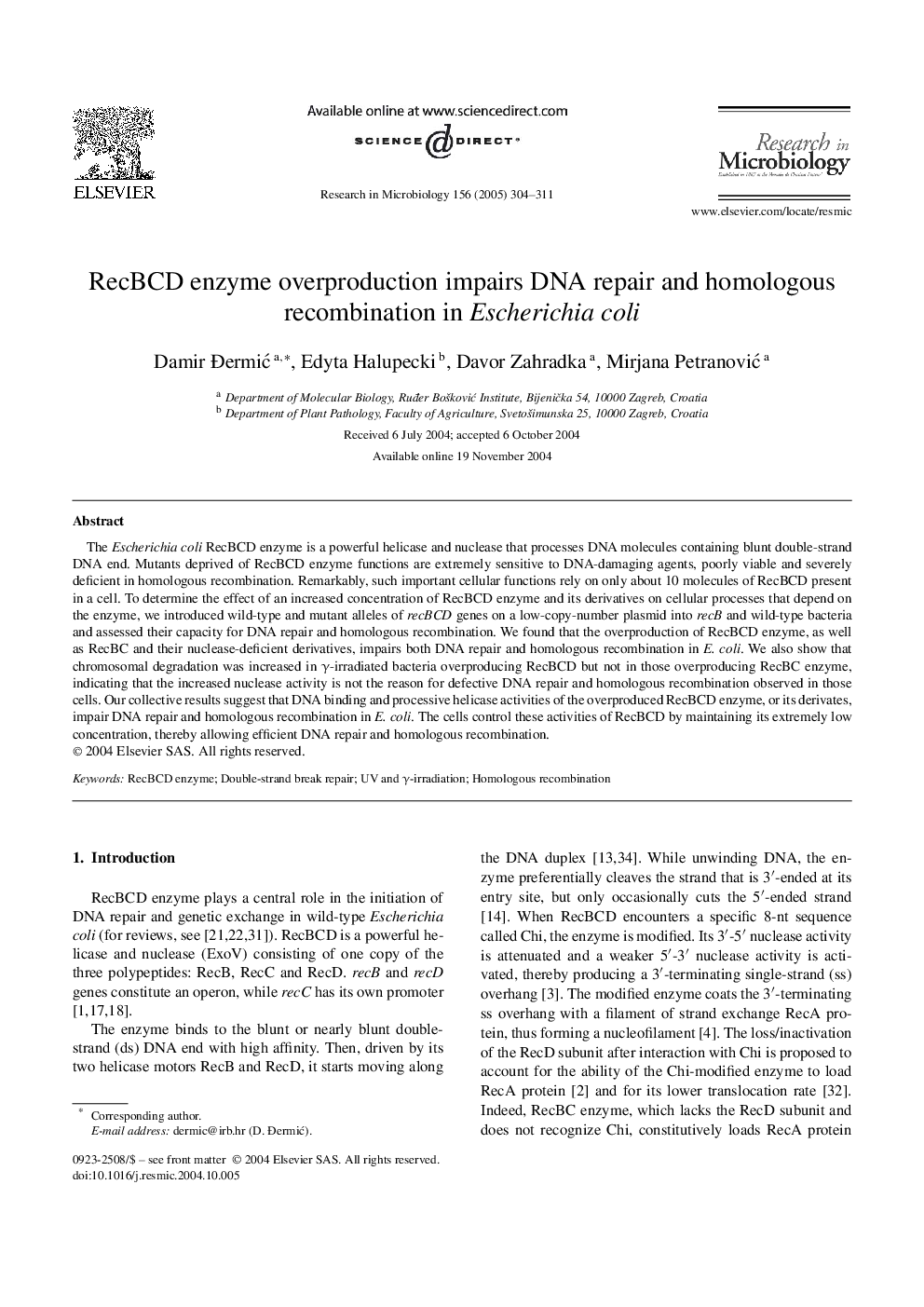| Article ID | Journal | Published Year | Pages | File Type |
|---|---|---|---|---|
| 9439856 | Research in Microbiology | 2005 | 8 Pages |
Abstract
The Escherichia coli RecBCD enzyme is a powerful helicase and nuclease that processes DNA molecules containing blunt double-strand DNA end. Mutants deprived of RecBCD enzyme functions are extremely sensitive to DNA-damaging agents, poorly viable and severely deficient in homologous recombination. Remarkably, such important cellular functions rely on only about 10 molecules of RecBCD present in a cell. To determine the effect of an increased concentration of RecBCD enzyme and its derivatives on cellular processes that depend on the enzyme, we introduced wild-type and mutant alleles of recBCD genes on a low-copy-number plasmid into recB and wild-type bacteria and assessed their capacity for DNA repair and homologous recombination. We found that the overproduction of RecBCD enzyme, as well as RecBC and their nuclease-deficient derivatives, impairs both DNA repair and homologous recombination in E. coli. We also show that chromosomal degradation was increased in γ-irradiated bacteria overproducing RecBCD but not in those overproducing RecBC enzyme, indicating that the increased nuclease activity is not the reason for defective DNA repair and homologous recombination observed in those cells. Our collective results suggest that DNA binding and processive helicase activities of the overproduced RecBCD enzyme, or its derivates, impair DNA repair and homologous recombination in E. coli. The cells control these activities of RecBCD by maintaining its extremely low concentration, thereby allowing efficient DNA repair and homologous recombination.
Related Topics
Life Sciences
Immunology and Microbiology
Applied Microbiology and Biotechnology
Authors
Damir ÄermiÄ, Edyta Halupecki, Davor Zahradka, Mirjana PetranoviÄ,
